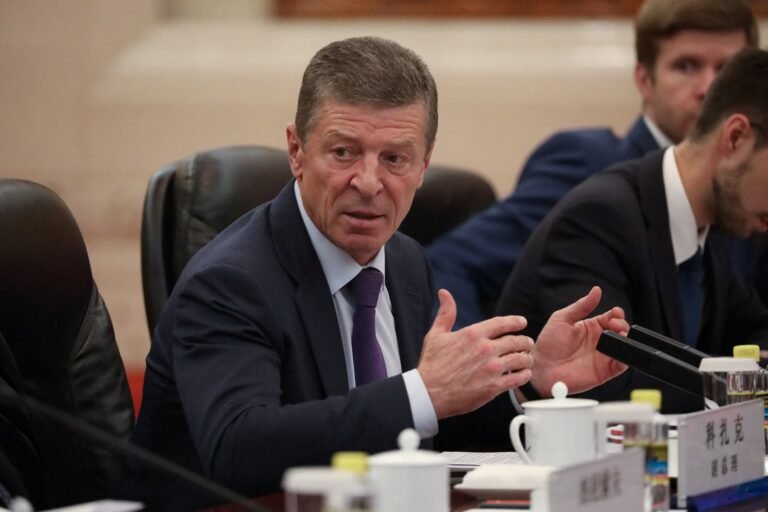A senior figure inside the Kremlin has stepped down, marking one of the most notable resignations in recent years. Dmitry Kozak, deputy chief of staff and a longtime aide to Russian President Vladimir Putin, has quietly left his post, according to official confirmations from Moscow.
Kozak, regarded as a skilled political operator, had been close to Putin for decades and was widely seen as part of his trusted inner circle. His departure is drawing attention because he was known to have quietly supported peace initiatives and had at times pushed for greater judicial independence—positions that appeared to diverge from the Kremlin’s hardline approach in recent years.
While no formal reason was given for the resignation, analysts say the move signals possible internal disagreements or tensions at the highest levels of Russian leadership. In a system where loyalty is prized and resignations are rare, Kozak’s decision stands out as a potentially meaningful shift.
Kozak’s political career stretches back to the early 2000s, when he held senior roles in the Russian government, including deputy prime minister. He was often tasked with handling sensitive issues, from managing regional conflicts to overseeing constitutional reforms. In recent years, he played a visible role in Russia’s dealings with Ukraine, particularly around efforts at negotiation before the war expanded.
Observers recall that Kozak at times appeared to favor compromise solutions in Ukraine diplomacy, advocating for dialogue with Western leaders and a less confrontational approach. Though his influence reportedly waned as Russia deepened its military campaign, his presence in the Kremlin had long been considered a moderating voice.
The quiet nature of his resignation has fueled speculation. Some analysts interpret it as a subtle form of dissent, while others suggest it reflects the Kremlin’s internal realignment as power becomes more concentrated around a smaller circle of hardliners.
For international observers, the resignation raises questions about stability and debate within Putin’s inner circle. Experts note that while the Kremlin typically projects unity, departures of senior figures often signal deeper currents of discontent or disagreement about policy direction.
So far, Russian state media has offered only limited coverage of the resignation, framing it as a routine personnel change. However, independent analysts emphasize that Kozak’s reputation as a pragmatic strategist makes his exit more than symbolic.
The departure also comes at a sensitive time, with Russia facing ongoing international sanctions, military challenges, and heightened pressure from NATO countries. Losing a figure who once advocated for peace initiatives could further narrow the diversity of perspectives within the Kremlin.
Kozak’s resignation may not immediately shift Russian policy, but it highlights the difficulties of maintaining unity amid sustained geopolitical strain. As one of the longest-serving aides to Putin, his decision to step aside underscores how even trusted insiders may find themselves at odds with the Kremlin’s current trajectory.
Whether this is the beginning of wider dissent or simply an isolated departure remains to be seen. Yet the Putin aide Dmitry Kozak resignation underscores the complexity—and fragility—of leadership dynamics at the heart of Russia’s power structure.







